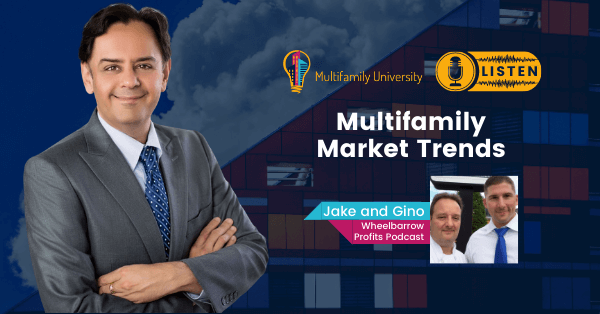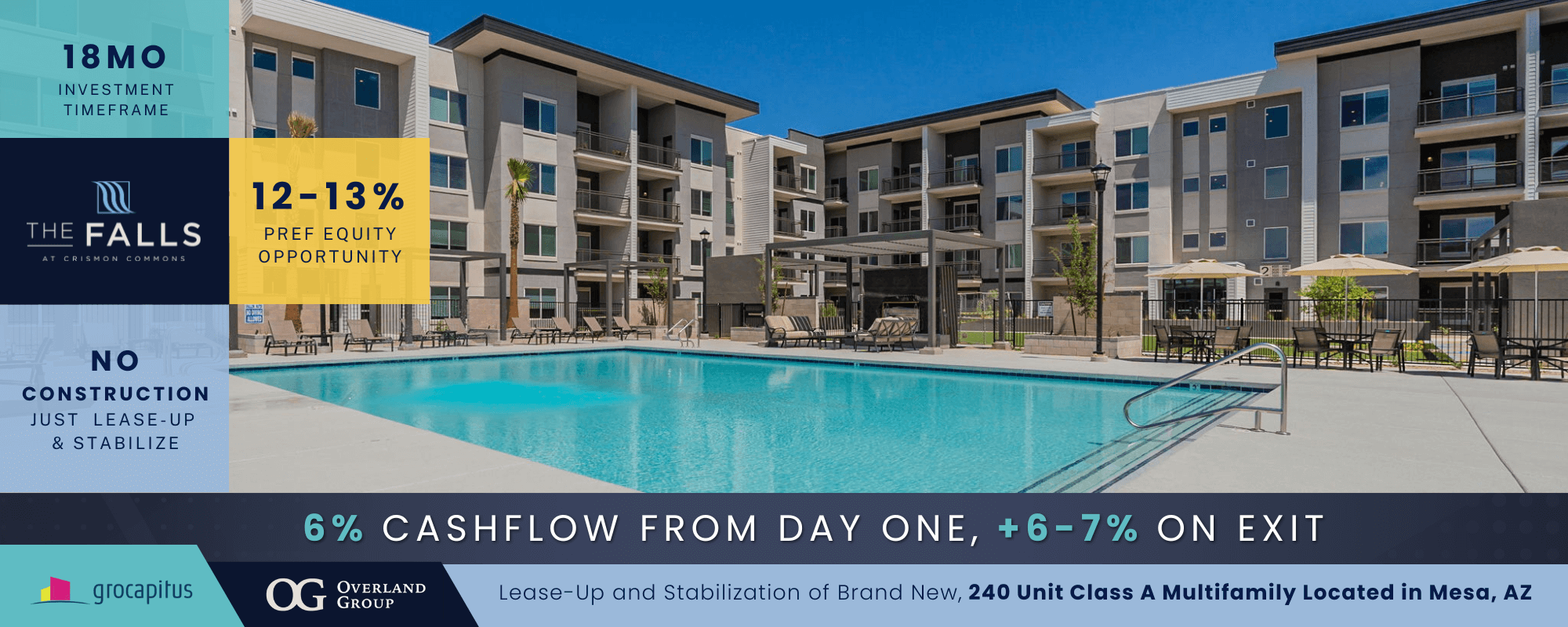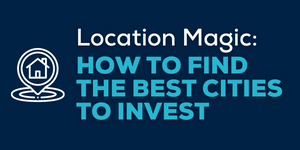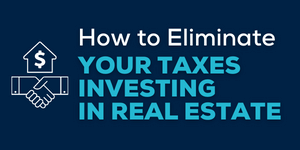
Multifamily Market Trends
So, the winners of tax reform are Texas, Arizona, Nevada, Florida and to some extent—some extent—states like Idaho, which just have robust economies. But most of the time, the leach is really into the sun belt. Expensive blue states are going to be really hurting. Connecticut, in my mind, is a huge, huge loser. Good bye Connecticut, because—and you’ve already started seeing that
Those kinds of impacts are going to affect markets that are low cap rates. What are the lowest cap rate markets in the U.S.? Boston, New York. These are markets that are going to get affected because, I mean, if I was a political man, and I don’t look into politics much, I would say that this is a brilliant move on part of the Republicans to move people from an expensive blue state into inexpensive red states.
I think that there are a few people that have made that argument, that that was the point of tax reform and especially the part of tax reform which took away salt, the subsidy that blue states have enjoyed for a long time.
In my mind, the blue states were basically getting away
Gino: Well, Neal, I moved over a year ago to Florida for that reason. Before tax reform, because I saw the property taxes that I was paying—even though my mom tells me, “Yeah, you can write them off,” I’m still paying them and it’s still, as my partner of there likes to say, it’s theft and it just wasn’t fair for what we’re paying for the public school system up in New York.
So, I have the option, I have the lifestyle where I can move to Florida, which is a no-tax state. There’s no state income tax, the cost of living is cheaper down here. The quality of life is better down there. So, I am a product of what you’re talking about, but I saw it before it happened, and I was planning for about a year and a half before this even occurred, so I’m glad you mention
Jake: [Laughs]
Gino: Why you laughing, bro?
Jake: Because you were drinking margaritas and now I
Neal: Yeah, I don’t think moving to Florida makes people more frugal or better with their financials, but there is no doubt that their quality of life increases.
Gino: No, I’m saying the blue states.
Neal: Well, I think that—and maybe this phrase is the wrong phrase—but I think that over the next three years,
Some of that growth has slowed already because these are extremely high immigration states and our overall rate of immigration has slowed tremendously in the last 12 months, but even beyond immigration, there were a lot of people coming in for jobs but now because they cannot afford
When I have tools like Zoom and Slack, I don’t want to hire employees in Silicon Valley and by the way, I’m not hiring employees in Silicon Valley. I’m looking for people that are in ecosystems such as yours, Jake and Gino, that want to come and talk with me and say, “We know you’re buying lots of
Jake: You just touched on a blue wave of deserters or whatever term you used.
Neal: Blue flight.
Jake: Blue flight, there you go. I think that—and you guys may think I’m crazy—but I would not be surprised if this takes hold, that you see policies put in place for economic deserters from some of these states that will penalize them on reentry if they leave or whatever the case may be, so be on the lookout, you heard it here first. Watch out for the economic deserters and the penalties because they will not get right up here between the ears, they will try to penalize and punish versus change the negative policies that they have. They won’t understand it and they will try to penalize versus self-correct.
Gino: Jake, I got a better one for you. New York is implementing free college, so they’re going to enslave people by giving free stuff, watering down the educational system, having you get college for free—
Jake: And you can’t leave for X-amount of years. Yes, this is the type of stuff they’re going to put the handcuffs on, yes.
Gino: You have to stay. So, just be aware, nothing is free in life because someone who is making more than 100 grand is going to be paying. Someone making less than 100 grand is going to get free college. Soon these schools are going to get inundated, the education is going to be more expensive for everyone that has to pay, and then
So, just be aware of your awesome and I think that’s awesome.
Jake: The golden handcuffs.
Neal: I think you’re going to see more and more of those. I completely agree that these states will take drastic measures, draconian measures, which may even be challenged in court, to just keep people inside, yeah.
Gino: Wow. We’ve been talking macro and I think this is wonderful for the listeners because they’ve got to get an overview, they’ve got to get bought into why multifamily, but what do you look for in a deal? What are your metrics in a deal? Do you look for any type of cap rates? Cash on cash returns?
Neal: Well, the short answer is, I’m beholden to my investors and even though I’ve provided a lot of education to my investor base on the fact that cap rates are compressing, and interest rates are rising, I find that it’s hard to raise money for a deal that doesn’t have 8 cash average. It doesn’t need to have 8 cash in year 1 but it definitely needs to have 8 cash average, so that’s really the primary focus. I found it difficult to raise money if it’s not giving 18% overall return. Not IR, just simple annual return, so if it’s 5 years, then a 90% return. 90 divided by 5 is 18.
So, those numbers basically are where I start and I’m finding it very difficult to buy properties. I’m finding it extremely difficult simply because these numbers, this
To me, I think this is the golden age of money. Equity has never been easier to raise, but it’s also very, very challenging for
Gino: Neal, we talked
Neal: What do you mean by that? You mean raising money?
Gino: Well, yeah, it’s more of networking with brokers, because I know you like to network. Deal flow, that whole networking ability where you go out to these different events and all that, I think it’s really important for the listeners to hear that.
Neal: So, I’m continuously going out to events to find people that have good deals that I can work with. So, sometimes it’s just not about your deal, it’s about partnering. This is especially important for students because early on, partnering makes a lot more sense. It reduces—the amounts of sense that it makes reduces after you’ve done three or four deals. But early on, it makes all the sense in the world because of manpower, because of money, because of the availability of staff hours to do lots of different things.
So, I’ve been looking to partner with people, so I went to the Atlanta Multifamily Summit. I parked there. I met both Jake and Gino there. I’m going out to Dave Lindahl’s event, which is this week, so I’m continuously touching people that are in the ecosystem on one side and then I’m reaching out to as many brokers as I can in markets that I like.
The outreach to brokers is in every way possible. I use a product called Active Campaign. I use automations and Active Campaign to touch the brokers that I know are active. I’m mining CoStar for the most active brokers, the people with the maximum number of deals in my ideal size and in my markets and reaching out to them in any way that I can. I’m scheduling visits.
When I go out to a metro, I basically make a Panera or a Starbucks my base of operations and I have my staff preschedule about 18 meetings in 2 days. People actually come in and they’re still eating food while the next guy comes in through the door and so I always have to apologize, and I explain to them that I’m here for two straight days, so I’m going to be at this café for about 10 hours a day.
What I find is that when I walk away from that two-day meet upon, like 16 to 18 meetings, I usually have one deal that I can do by myself and I have one deal that I can do together with my partner.
Obviously, in my mind, going out is not important. Setting up your visit is much more important. Because everyone knows that face to face works better. A broker wants to see you face to face. But if you do the work up front of getting enough brokers and enough lenders and enough partners in the pipeline before you go, you’re always going to have a successful visit.
Jake: Cool. On the habit side of thing, I always ask people what their best habit for success is. Is this something that you do on a daily or weekly basis that really drives your success? Anything there to share?
Neal: Well, I found that a lot of people say that you want to have creativity and what they’re really saying is, “I don’t need to
I use software, I suggest that people that are getting started use software. I’m very tied to a project management, Slack for collaboration. The process of learning that software and structuring your teams to use that software really makes you a much better manager. That’s my feedback for you.
My last piece of feedback is a good habit is always be interviewing virtual assistants. I can truthfully say that I’ve scheduled 10 interviews with virtual assistants in the last 7 days and it takes me 16 interviews that I want to hire. But those VA’s, the good ones, the 1 in 16, will give you more hours in a day. So, I can say I have 100 hours in a day, easily.
Jake: For those of you who are just getting introduced to Neal, I’m going to classify him as the king of virtual assistants. Neal is the king of virtual assistants and I want to say that about a year ago I picked up, I think it was from Jack Canfield, that same idea of looking at your schedule the night before and I think it’s something even more powerful for it, that it may get lodged in your subconscious while you’re sleeping, whatever the case may be, but I think actually that structure coupled with that organization and reviewing your schedule the night before, can actually lead to creativity and more creative ways to get things done the next day and I’ve found extreme value in it and I recommend anyone out there that’s not doing that, it’s simple. You may say, like is that really going to do anything for me? No, it does. I’ve actually seen the success of reviewing the day before and I may be sitting there staring at the ceiling at night and then pondering different ways to tackle the next day and getting ahead of the day and being more productive. That’s real and I recommend everyone to get on board with that because I’ve seen success personally, so has Neal.
What do you see students starting out doing that they should do differently or things to watch out for when they’re just getting into this multifamily game?
Neal: Well, the first thing that I see them not doing is they’re not following my mantra of always be raising money. So, I find students are very hesitant to raise money until they get a deal. My advice is, don’t raise any money while you’re in a deal because it takes so much time and effort to do the deal and to close the deal and to actually bring money in from people that you’ve already got.
I can tell you, the last deal we did, we did the entire syndication process, it took us about 48 hours to actually raise the money to where people had verbal estimates and then it took us about 11 days to get all their docs done. It took about 13 days to close this property, it was about $12.5 million.
Why was I able to do that so quickly? That’s because I’m always raising money when I don’t have a syndication going. In my mind, that is the right time to raise money. People are like, “Yeah, but I don’t have a deal, what am I going to show people?” Well, show them a deal that you underwrote. Show them a deal that you would have bought if you didn’t get bid out., Start believing in your mind that this is your deal. It is in
In fact, I’m telling you, you do not want the primary
Jake: That’s good. You were talking about pulling levers, turning knobs, being the operator before. What is your best value-add strategy when you get into a deal? What is the go-to that you’ve used time and time again to increase value or to decrease expenses?
Neal: Leasing. What I find is that—I’m not going to discuss the standard value-adds. All of your students know them, you’ve taught it to them. Let’s skip past that, right? Because everybody talks about it. What I find is that 99% of operators in the U.S. do not play a role on the leasing side and I think that’s
Jake: He’s talking about asset managers, right, Neal?
Neal: Asset managers. I’m not talking about property managers. What I see are 99% of asset managers are leaving the generation of tenant leads, the processing of tenant leads, to their property managers. In my mind, that is an area that you should develop in because there is a huge role for an asset manager to play to increase the number of incoming leads through technology and secondly, the efficient processing of those.
I have properties where 100% of all leads are being generated by us as asset managers and 100% of all leads are being processed by us using our Filipino call center. I’m not suggesting that that is what you should do. I’m saying that to open your mind about what is possible.
All I’m saying is, you asked me for value-adds. That’s an area where you can add
Jake: I have something very passionately to say about this because at the end of the day, Neal, Gino, Jake, we are responsible for our results. So many guys out there will just say, “No, that’s this guy’s job or that guy’s job.” Well, if you want it done better and if you want it done right, take control of your life, take control of situations that are very important to you that you want to drive and be the person that gets in there and shakes things up and gets the results that you want.
So, basically what Neal is saying is leasing is very important. That’s the revenue side of the equation. That’s one of the most important factors in what we do. He’s taking control of that to guarantee and ensure success for himself and his investors because it’s that important.
I love that, man, because so many times people go, “Oh, that’s not my job.” You know what your job is? To deliver results in any way that you find to do that that works for you, good for you.
Neal: Absolutely. I mean, just think about the math. A 2% boost in occupancy, let’s say you didn’t do leasing, you ended up with a 94% occupancy. You did leasing, you ended up with 96. Okay? So, 2% increase in occupancy and a $25 average boost in rents, because your property manager is always going to try to push the rents down a little bit to make it easier for them to rent it out, those two together, on a $17 million typical deal where investors are investing $5 million, that’s $2.7 million right there. $2.7 million over 5 years.
Jake: That’s awesome. Do you have any book recommendations? I don’t know if you’re an avid reader or not, but we love self-development on this show and always like to promote the good stuff that’s out there in the environment. Anything that you’ve read recently or anything that you’d like to recommend to the listeners?
Neal: Well, a pretty popular book called The One Thing and I think that it’s a well-known bestseller. To me, I think that that book is very useful because I tend to be all over the place. I tend to want to do 100 different things. I tend not to want to focus. I tend to be the kind of guy that’s looking at 250 tasks in a project management software to feel good about myself, and I think that book reminded me that that is not scalable and that is not the right way to do things. You’ve got to have the one thing that you really pursue at any given point of time with a single-minded fixation.
While I’m not 100% implementing what the book is doing, I’m certainly making changes to my behavior to go in that direction.
Jake: Sounds like he’s doing a little Law, Gino.
Gino: He sure is.
Jake: What project are you excited about right now?
Neal: It’s actually one of my older projects, so in Buffalo, right next to the university, there is no land because the university is 150 years old and all the land is basically locked up or
Now, they’re not doing it out of the goodness of their heart. Right now, if you think about a 10-year timeframe for a property that we’re going to build, it’s a $44 million project, when it’s done, it will have a $60 million appraised value. So, $60 million, 2% of that is a million two in property taxes. The current property taxes for the place are under 100,000. The city makes over a million dollars a year ongoing because of our remediation, which is why the city is giving—
Jake: And that’s only going to go up, Neal. [Laughs]
Neal: That’s right. That’s only going to go up, right? It’s New York, right? So, now the city is basically saying, “We will pay you millions of dollars in tax benefits today so that you can turn this land from low value industrial to best use student housing multifamily. We’re building a brand new project on top of it and on my website, Grocapitus.com, you can actually see that project. You can see it being built. Construction starts in about three or four months, so I’m really interested in that project and its success because in my mind, it’s not true
New construction is always
Jake: What is the best place for listeners to get a hold of you and find out more?
Neal: The short answer is
Jake: Very cool. G-Dad, anything else?
Gino: I like this habit. I try to employ it. I call it the
I think Neal is obviously—we should have a couple more margaritas. Maybe in
Jake: I’m going to be at the Ed Sheeran concert. I can only do one of these like every six months here.
Gino: No, no, no. Forget Ed Sheeran. I’m not going to learn anything from Ed. I’m going to learn a lot of stuff from Neal, so I’m going to go jump on Neal and say, “Hey, Neal, teach me.”
I just want to thank Neal for coming on, it was a great show. I really appreciate the time.
Neal: Thanks so much, guys. I appreciate you having me on the show and love to talk with you offline further as well.
Jake: Sounds good.
Gino: Thank you.
Jake: Thanks, Neal.
Neal: All right, bye-bye.




